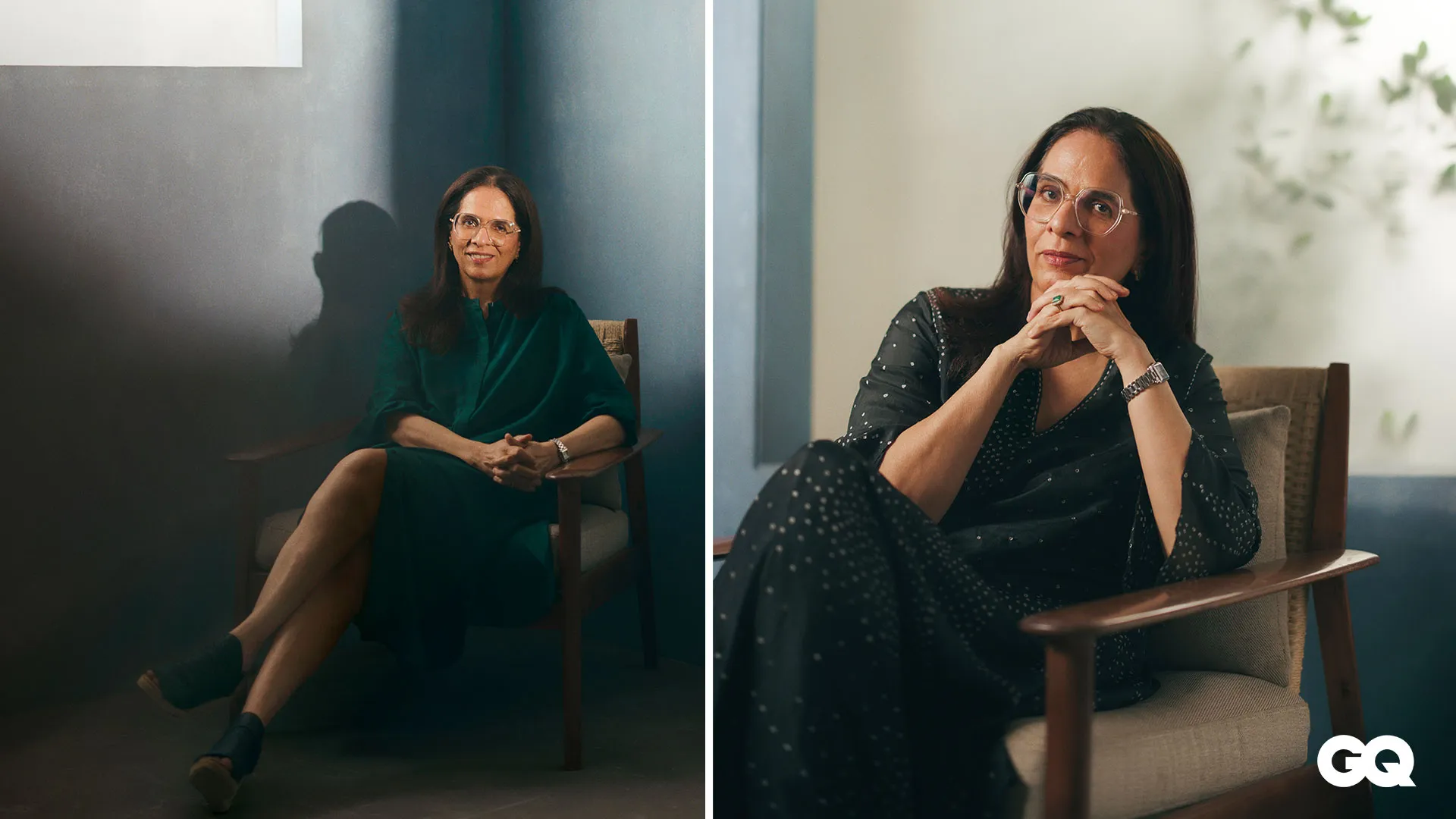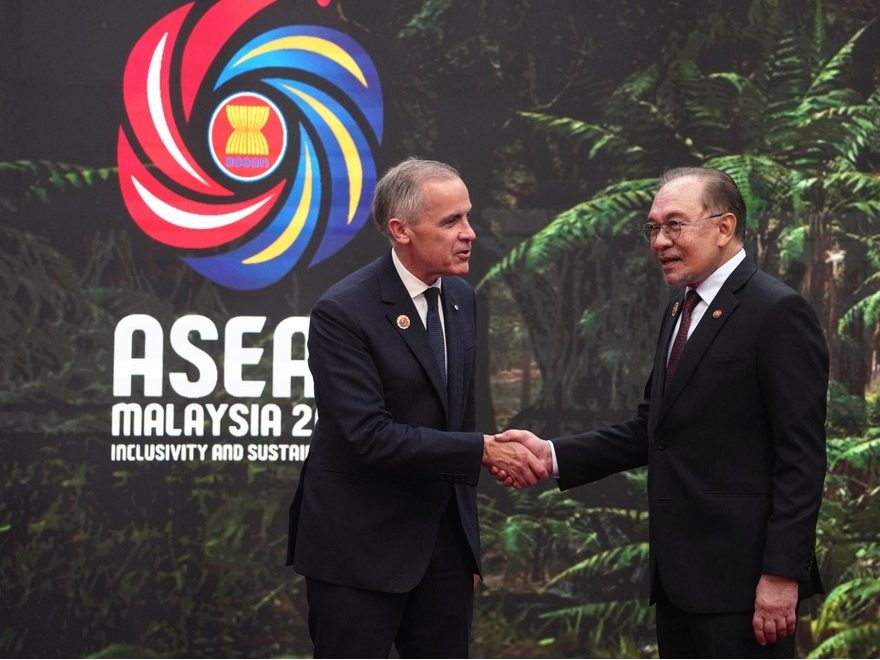Copyright gqindia

In the year 1995, armed with just two sewing machines, Anita Dongre had a singular vision: to design garments for the modern, independent Indian woman. Over the next three decades, this very vision blossomed into a mammoth empire—the House of Anita Dongre, a universe of five distinct labels: the free-spirited boho of Global Desi; the sustainable sophistication of Grassroot; the effortless everyday elegance of AND; the couture of her eponymous flagship line; and the handcrafted treasures of Pinkcity. With over 270 stores worldwide, Dongre recently bought back nearly 40 per cent of her brand from equity firm General Atlantic, asserting full family ownership and a steadfast commitment to authenticity, craft and purpose. Company of Women There’s a certain calm that surrounds Anita Dongre, the kind that speaks of quiet confidence rather than a hierarchical approach. When she talks about leadership, it isn’t in the language of boardrooms or balance sheets, but in that of empathy, intuition and grace. There’s a familial rhythm to the way her company runs, almost matriarchal—-collaborative, nurturing and yet powerful. It’s easy to forget, in a world that still prizes toughness as a measure of success, that softness can be just as strong, if not stronger. Her brand of -leadership challenges the old order; she proves that emotional intelligence and business acumen aren’t contradictions, but perfect complements. “I don’t think I’m in the business of fashion,” she says at the GQ Heroes summit held in Bengaluru. “I’m in the business of making people feel good.” At the House of Anita Dongre, most of the team comprises women, not because of quotas or policies but because that’s simply the culture she’s built. “Our time has come,” she says, leaning in. “Women make better leaders because of the empathy they bring to an organisation.” Threads of Change It’s easy to see how seamlessly her story intertwines with the stories of countless other women whose hands stitch, embroider and weave her vision into being. Her own journey is inseparable from theirs; the fabric of her success is threaded through their craft. Long before sustainability became a buzzword or checkbox for retail houses, Dongre was creating livelihoods for women in rural India. “I want to take employment back to the villages. Women shouldn’t have to leave their homes or their children to earn an income.” It wasn’t just a statement for applause; it’s truly the heart of her brand’s philosophy. By bringing opportunity to women’s doorsteps instead of drawing them away from their roots, she has reimagined what modern entrepreneurship can look like in India. For the 62-year-old designer, “luxury” isn’t the shimmer that’s seen on a runway. It’s the dignity that blooms in a woman’s life when she earns her own livelihood. Beyond the Seam The four pillars for Dongre’s empire are empowering women, driving change, championing Indian craftsmanship and redefining sustainability. Employing mindful practices wasn’t a pivot or a rebrand for her; it was always the foundation. “We’ve never used leather. Not in any of our brands,” she says simply, a promise written into her brand’s DNA and kept for three decades. In an industry still grappling with its -environmental reckoning, she has been ahead of her time. Her commitment extends far beyond vegan materials and industry certifications. Two years ago, she launched Rewild, a fashion fundraiser for wildlife conservation, supporting NGOs focused on mitigating human-wildlife conflict and protecting endangered species. “Humans have encroached on animal habitats. Reducing that conflict is key to our future,” she explains. While the first edition of Rewild took place at Jaipur’s City Palace, the sophomore edition is set to take place at Vadodara’s Lukshmi Vilas Palace in January and will once again welcome indigenous artists and musicians to celebrate culture and showcase craft. For Dongre, advocacy isn’t segmented. Women’s welfare and animal welfare, they converge as two sides of the same coin. “Both are voiceless. I try to be their spokesperson.” Playing at Representation When global toymaking giant Mattel approached her to design a Barbie doll, it felt like coming full circle. “Growing up, I never had a Barbie. We were six kids in a middle-class family,” she recalls. So when the opportunity arrived, she knew exactly what she wanted to create: a doll that looked like the young Indian woman of today, unapologetically herself. The response caught her off guard. Mothers reached out, some in tears, sharing how their daughters finally held a doll that looked like them. The first edition sold out within days; the second has recently launched. But the numbers weren’t what moved her. It was the realisation that representation isn’t just important, it’s also transformative; it isn’t cosmetic, it’s corrective. Head of Editorial Content: Che Kurrien Styling: Ojas Kolvankar Hair & Make-up: Anuradha Raman Set Designer: Purnima Nath Art Director: Mihir Shah Entertainment Director: Megha Mehta Senior Entertainment Editor: Rebecca Gonsalves Visuals Editor: Shubhra Shukla Production: Nafromax Productions Fashion Assistants: Mahek Gada, Saiee Nalawade Hair & Make-up Assistants: Madhura Deokute, Suraj Tiwari



